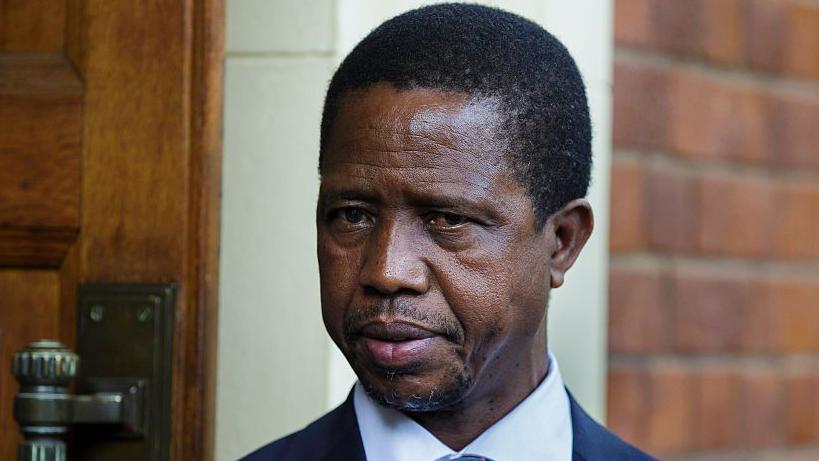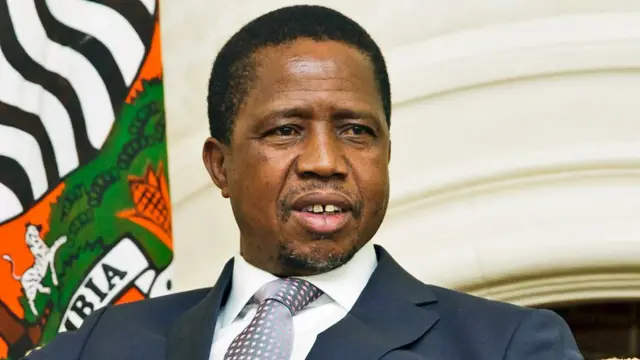
Introduction
The planned burial of Zambia’s former president Edgar Lungu burial was abruptly halted by a South African court just moments before it was due to begin. The legal action comes amidst a deepening rift between the Zambian government and Lungu’s family over who should control the funeral arrangements, reflecting long-standing political tensions between Lungu and his successor, President Hakainde Hichilema.

The Pretoria High Court ruled that the private burial organized by Lungu’s family could not proceed, and postponed the matter until August. Mourners were only informed of the postponement after the funeral mass had concluded, sparking confusion and disappointment Edgar Lungu burial.
The Legal Showdown Over Lungu’s Final Resting Place
The South African court decision followed an urgent application by the Zambian government to stop Lungu’s burial in Johannesburg. Though both parties reportedly reached an agreement during the hearing, the matter is now scheduled to be heard as a special motion on 4 August 2025.
The Zambian attorney general has until 4 July to submit an amended notice for the repatriation of Lungu’s body. The family has until 11 July to file opposing papers, making this legal battle a significant moment in Zambia’s ongoing political drama.

Read more on The Morning News Informer’s World News section.
Political Feud Extends Beyond the Grave
Lungu’s family chose a private burial in South Africa following his death at age 68, bypassing a full state funeral in Zambia. President Hichilema, however, has insisted that Lungu “belongs to the nation” and should be buried on Zambian soil with full state honors.
This standoff is the latest episode in a bitter feud dating back to when Lungu had Hichilema jailed on treason charges in 2017. Relations between the two leaders never recovered, and the friction is now playing out in the decisions surrounding Lungu’s burial.
Burial Disputes: A Recurring Theme in African Politics
This isn’t the first time a deceased African leader’s burial has triggered controversy. The case of Zambia’s founding president Kenneth Kaunda in 2021 is notable. Despite his family’s wishes to have him buried beside his wife, the government insisted on a state burial at Embassy Memorial Park in Lusaka—a precedent cited in the current dispute.
Similar posthumous disputes occurred with Angola’s Jose Eduardo dos Santos and Zimbabwe’s Robert Mugabe, where burial locations became points of national and political contention.
Mourner Reactions and What’s Next

Images from Johannesburg showed mourners in black clothing, many unaware of the court’s decision until after the funeral mass. Tension and confusion rippled through the crowd, who had gathered expecting to pay their final respects.
The Pretoria High Court stated the funeral will not proceed until the case is heard in August. Meanwhile, Edgar Lungu’s body remains in South Africa under temporary arrangements.
Conclusion
The halted Edgar Lungu burial marks a flashpoint in Zambia’s struggle between personal legacy, family autonomy, and national symbolism. The dispute reflects unresolved tensions from Lungu’s presidency and highlights the complex intersection of politics and tradition in African state funerals.
The world will now watch as legal proceedings unfold, potentially reshaping how Zambia—and other nations—handle the deaths of divisive leaders. For now, Edgar Lungu’s final resting place remains undecided, his legacy still entangled in political power plays.









